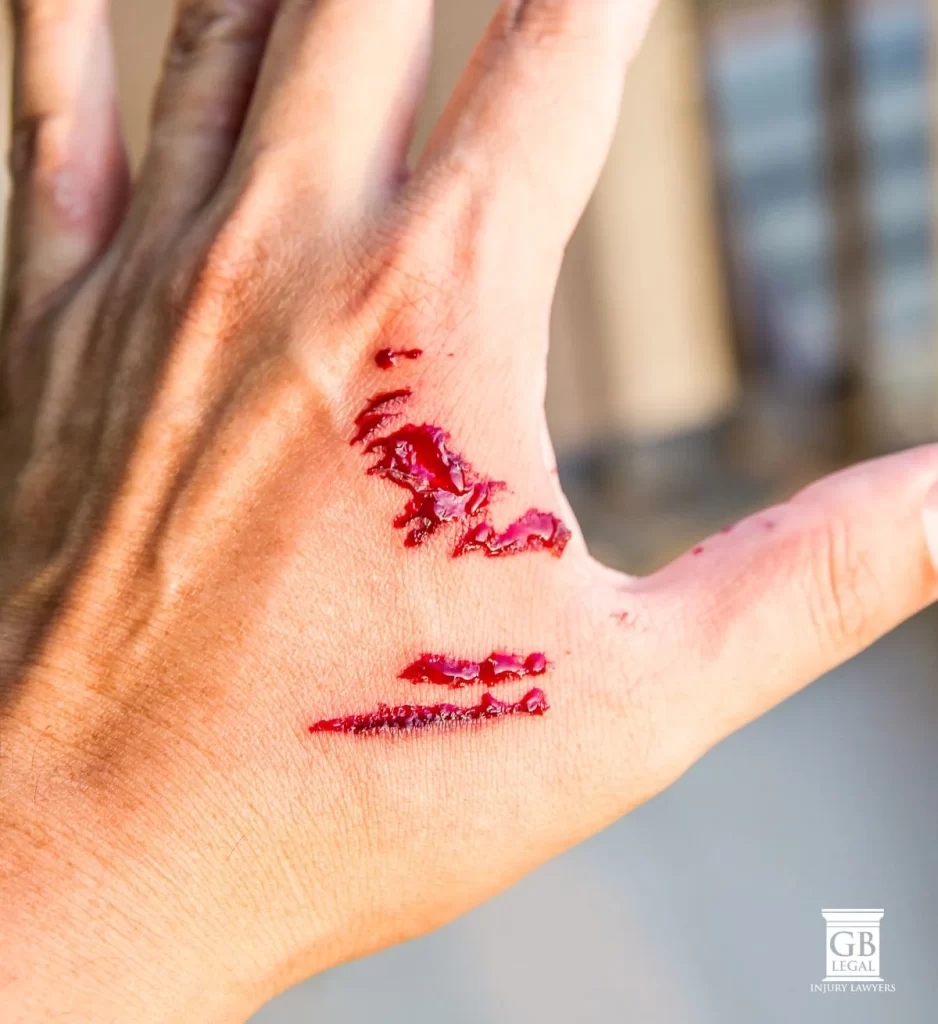If you or a loved one has recently suffered a dog bite and are asking yourself, “How do you know if a dog bite is serious?” the Sacramento dog bite attorneys at Guenard & Bozarth, LLP are here to help. Whether you are the victim of a dog bite or a concerned pet owner, understanding these critical aspects can make a significant difference in prevention and adequate aftercare following an attack.
Dog bites can be distressing and painful experiences, often leaving victims unsure of the severity of their injuries and the necessary steps to take. Knowing the signs of a severe bite not only ensures your health and safety but also strengthens your case should you need to pursue legal action for damages. It is important that you understand the critical indicators of a serious dog bite and the steps to take in the aftermath of the incident.
Signs That Indicate a Serious Dog Bite
It is important to recognize the signs that indicate a serious dog bite. It is crucial to ensure timely medical attention and engagement in preventative measures to ensure your bite does not worsen and can be treated immediately. Below are key indicators that a dog bite is serious and requires immediate medical evaluation:
- Deep wounds or Punctures: If the bite has penetrated deeply enough to expose muscle, tendons, or bone, it is serious.
- Heavy Bleeding: If the bleeding doesn’t stop after applying pressure for 10-15 minutes, or you experience blood squirting, this indicates potential damage to a major blood vessel.
- Wounds on Critical Areas: If bites are on the face, neck, head, hands, feet, or joints, it may be a serious situation that can lead to complications, including a higher risk of infection and damage to important bodily structures like tendons and nerves.
- Infection: If you notice signs such as redness, swelling, warmth, pus, discharge, red streaks, and pain, you may have an infection that should be medically treated.
- Systemic Symptoms: Serious injuries will show through systemic symptoms such as fever, chills, fatigue, swollen lymph nodes, especially near the bite area, and more.
- Rabies and Tetanus Risk Factors: If the dog’s vaccination for rabies and tetanus is unknown, the injury may prove serious.
A serious dog bite can present in a variety of ways, such as deep wounds, uncontrolled bleeding, infection signs, and more. It is essential that you seek immediate medical attention to prevent complications and ensure proper treatment. It is important to note that a dog bite does not have to be serious for medical treatment to be sought.
Treatment Options After a Dog Bite
Treating a dog bite effectively can involve a combination of immediate first aid, medical evaluations, and advanced care. The first step in treatment after a dog bite, no matter how serious it presents, is to initially care for the wound. This includes stopping the bleeding, cleaning the wound, applying antiseptic, and covering the wound. Once this is done, the injured individual should get a medical opinion.
A medical evaluation and treatment can include a second thorough cleaning where the professional may determine stickers or staples are needed. They may also administer oral or intravenous antibiotics to help prevent or treat an infection. In serious cases, the medical provider may suggest a tetanus booster as well as rabies post-exposure prophylaxis. This vaccination administers immediate passive immunity and requires a series of shots.
Certain cases may require advanced treatments such as surgery to repair muscles, tendons, or nerves. Physical therapy is another treatment option that restores function after the effects of the bite, especially to the hands, feet, or joints, to restore full mobility.
FAQs
Q: When Should You Get a Dog Bite Checked Out By a Doctor?
A: You should get a dog bite checked out by a doctor in several scenarios. If your tetanus shot is not up to date, you have underlying health conditions, and the dog’s vaccination status is unknown, you should get medical attention immediately. If you have suffered a large and deep wound with heavy amounts of bleeding that doesn’t stop with pressure and notice signs of infection, it is important to get the wound evaluated as soon as possible.
Q: How Can I Prevent Infection After a Dog Bite?
A: You can prevent infection after a dog bite by performing immediate and thorough care for the wound. This includes cleaning the wound thoroughly, stopping the bleeding, applying antibiotic ointment, and covering the wound. Even if you have followed these steps, infection is still possible, which is why it is essential to monitor the wound for signs of infection. These signs include redness, swelling, discharge, fever, and chills. Speak with a medical professional to learn more.
Q: What Is the Risk of Rabies From a Dog Bite?
A: The risk of rabies from a dog bite can vary depending on several factors, such as the vaccination status of the dog, the prevalence of rabies in your area, and the circumstances of the bite. If the dog is up-to-date on their rabies vaccinations, the risk of rabies transmission is low. There are specific regions in the world where rabies is more common and where the risk is higher.
Q: Do I Need To Report a Dog Bite?
A: Yes, reporting a dog bite is generally recommended and, in many areas, legally required. There are several reasons for this but primarily for health and safety, as reporting helps local health authorities track and control the rabies risk locally and can also ensure the victim receives appropriate medical care and follow-up. Always seek immediate medical attention after a dog bite and work to gather relevant information about the dog and incident that may be helpful in your report.
Speak With Local Sacramento Dog Bite Attorneys Today
Dog bites can lead to serious physical, emotional, and financial consequences for the victim. Understanding the legal implications and knowing your rights is crucial if you or a loved one has been bitten by a dog. At Guenard & Bozarth, LLP, our Sacramento dog bite attorneys are dedicated to advocating for the rights of dog bite victims. Reach out today to set up a consultation if you or a loved one has been injured by a dog.


